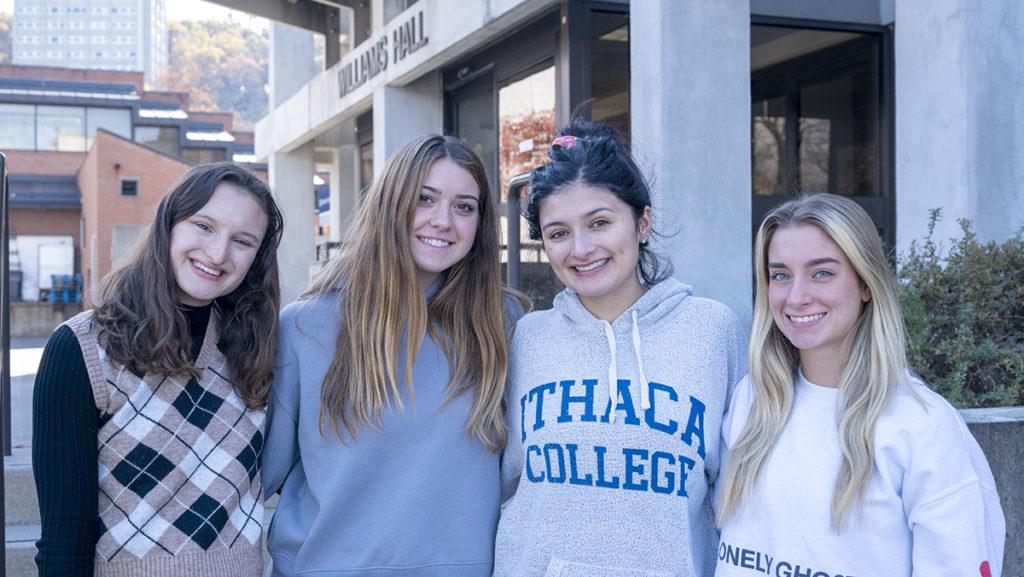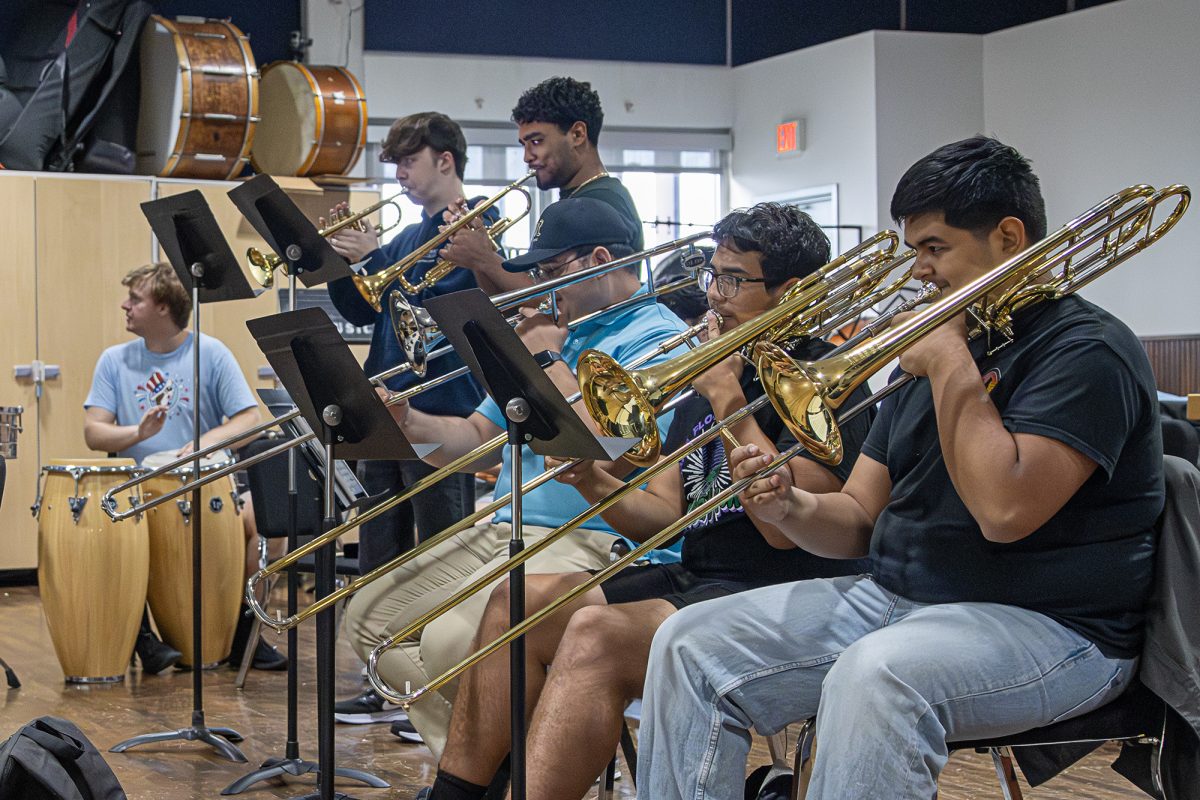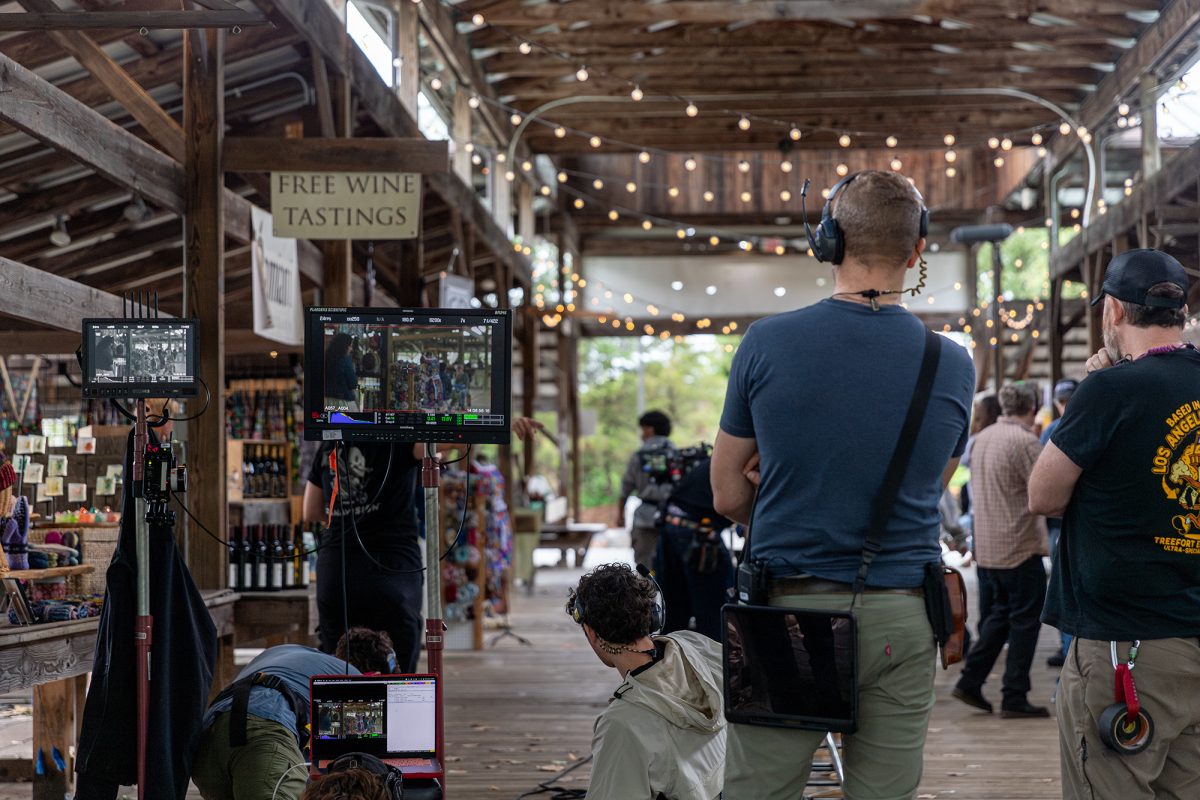Plates of apple nachos smothered in peanut butter, melted chocolate and chocolate chips cover the tables of Williams Hall Room 210 during an IC Nutrition Club meeting. Students chat as they eat their snacks and compete in trivia.
The nutrition club meets bi-weekly at 8 p.m. on Tuesdays in Williams 210. Sophomore Alison Hitchens, president of the nutrition club, said the club runs activities like making its own snacks and having trivia nights. Hitchens also said the club hosts events like cookie decorating in IC Square and has even taken trips off campus like going to the farmers market together.
Hitchens said the goal of the club is to be a resource and a social outlet for people interested in nutrition.
“[The purpose of the club is] just to kind of raise awareness about healthy options on campus and in dorms,” Hitchens said. “I know it’s really difficult to have accessible healthy food in college, especially if you’re on campus and not an apartment.”
Junior Eliza Ostrofksy said the club has given her new recipes and ideas for healthy eating as a college student.
“I think being in a dorm room, nutrition club is very useful because the food that we are making and we’re learning about I think is curated to students who don’t have a lot of access to food or cooking besides dining hall food,” Ostrofsky said.
Hitchens said she has found that there are a lot of misconceptions around nutrition that do not look at the idea holistically.
“People always see it like ‘Oh, you’re a nutrition major. You eat healthy all the time.’ And I’m like, no, actually, that’s not really what it is,” Hitchens said. “It’s more like a balance of your overall well-being of what you emotionally desire and what makes you feel good internally.”
Junior Briana Carrasaca, treasurer of the nutrition club, said she wants people to feel supported, not judged, by the nutrition club members.
“Food is food,” Carrasaca said. “There are nutrients in anything you can find. As long as you’re just fueling your body with what makes you feel good, like that’s all we really care about.”
Hitchens said it has been difficult to find nutritious, fulfilling options on campus, specifically in the dining halls.
“I find a lot of times especially like breakfast, like I’m not feeling full for the time I should be just due to the quality of the food,” Hitchens said. “And I think that does need to change.”
Amy Frith, associate professor in the Department of Health Promotion and Physical Education, said she has been the advisor for the nutrition club for eight years. Frith said she is also part of the dining hall committee, and believes the dining hall is trying to provide nutritious options for students.
In 2019, the college ended its contract with its long-time food provider Sodexo, instead opting for in-house dining services. Frith said this switch to sourcing local food from local businesses has resulted in healthier options for students.
“It’s good for students, their food is much healthier and more nutritious,” Frith said. “So even that kind of move of really getting local people and local businesses are providing the students food that’s healthier food for the students.”
Frith said that making food more accessible has been a key part of the nutrition club. She said the club has worked with organizations like Meals on Wheels, a non-profit that provides nutritious meals to seniors who have limited access to food, in the past. Frith said this year the club wants to work more with the IC Food Pantry and the food cabinet set up on campus by Tompkins Mutual Aid.
Prior to the COVID-19 pandemic food insecurity was the lowest it had been since the 1990s with 1 in 9 individuals living in food insecure households. According to Feeding America, this number increased with approximately 45 million people, or 1 in 8 individuals, having experienced food insecurity in 2020.
Hitchens said she wants the club to get more involved in addressing food insecurity, but has struggled because of COVID-19.
“Service and food inequality is definitely a big part of our club,” Hitchens said. “That’s definitely something that’s been kind of a struggle with like COVID, like, more hurdles to jump through in terms of getting volunteer hours and getting involved with the blue cabinet.”
Hitchens said she encourages people to embrace nutrition in college, but to do so in a way that is gradual and healthy.
“Just making small changes over time instead of trying to do it all at once is definitely something I would recommend,” Hitchens said. “Because then if you’re restricting yourself too much, that just ends up with you starting from scratch. Just go easy on yourself and know that the process isn’t always super linear.”















